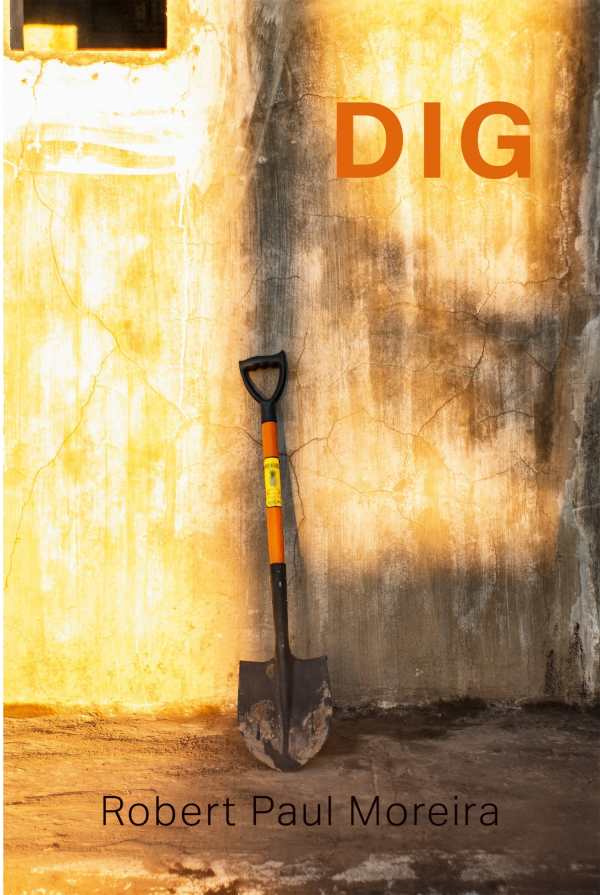Dig
Dig is a gritty literary collection whose diverse entries concern finding one’s place within a family, a culture, and a country.
Latino individuals navigate myriad personal difficulties in Robert Paul Moreira’s literary collection Dig.
In this collection: A security guard tries to win back his mercurial lover’s affections. A young man enters a cockfighting competition to get the money that his girlfriend needs for an abortion. An astrophysicist tries to tell others about her latest discoveries, but only an amateur astronomer and fellow Latina is willing to lend an ear. These are just a few of the bleak but realistic dilemmas spotlighted here. Across different genres and writing styles, Moreira weaves tales of loss, anger, hopelessness, and the frustrations of living among those who refuse to understand or accept anyone different.
The men in these stories often feel betrayed, victimized, or pressured by the women in their lives: in “Mom Spit Blood,” a young man cannot live up to his mother’s expectations, while in “The Lighthouse,” two brothers and their friend blame a young woman when their attempt to escape Cuba goes awry. In other stories, the characters confront broader issues: “The Runner” is about a father dealing with impotence, unemployment, and condescending treatment from white people, while “Kiki” has a jaded student learning to see his brother’s death in a new light.
These stories are grim and sometimes grisly, and violence—boxing, cockfighting, sexual harassment, and murder—is often a part of their casts’ everyday lives. Not all of the characters are sympathetic: some allow the wounds inflicted on them by an unfair world to get the better of them. Their anger reveals the dark side of self-discovery: even with the best intentions and the most herculean efforts, there is no guarantee that you will like what you find at the end of a journey.
Metaphors and fragmented storytelling lend an otherworldly quality to some of the stories, obscuring facts in favor of emotions. Certain events or behaviors stretch credulity; points are overemphasized, and people are forced to act in inexplicable ways. Other stories are more grounded in painful realities: people are forced to recognize that their heritages, their traumas, and their dreams are too big for their environments, which keep happiness from them.
It is fitting that the collection’s happy endings are few and far between. In return for their hard work, the characters receive solitude, shattered expectations, and no recognition for their labors. If they are lucky, they can rebuild from where their struggles have left them, content with the lessons they have learned. If not, they may be left with just one other option: to lash out.
Dig is a literary collection about finding one’s place within a family, a culture, and a country.
Reviewed by
Eileen Gonzalez
Disclosure: This article is not an endorsement, but a review. The publisher of this book provided free copies of the book and paid a small fee to have their book reviewed by a professional reviewer. Foreword Reviews and Clarion Reviews make no guarantee that the publisher will receive a positive review. Foreword Magazine, Inc. is disclosing this in accordance with the Federal Trade Commission’s 16 CFR, Part 255.

